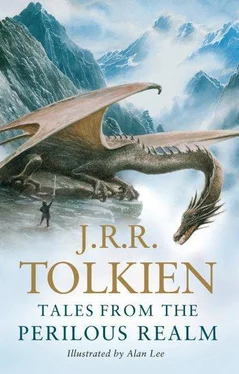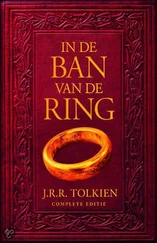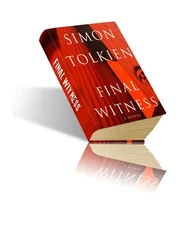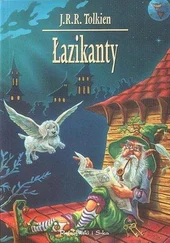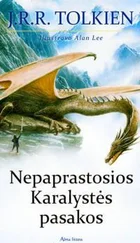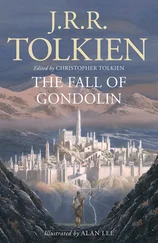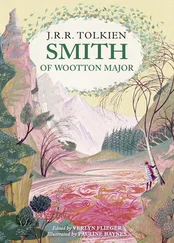He took it down and blew the dust off the lid; but when he opened it he found that very little of the spices was left, and they were dry and musty. But in one compartment in the comer he discovered a small star, hardly as big as one of our sixpences, black-looking as if it was made of silver but was tarnished. "That's funny!" he said as he held it up to the light.
"No, it isn't!" said a voice behind him, so suddenly that he jumped. It was the voice of Prentice, and he had never spoken to the Master in that tone before. Indeed he seldom spoke to Nokes at all unless he was spoken to first. Very right and proper in a youngster; he might be clever with icing but he had a lot to learn yet: that was Nokes's opinion.
"What do you mean, young fellow?" he said, not much pleased. "If it isn't funny what is it?"
"It is fay ," said Prentice. "It comes from Faery."
Then the Cook laughed. "All right; all right," he said. "It means much the same; but call it that if you like. You'll grow up some day. Now you can get on with stoning the raisins. If you notice any funny fairy ones, tell me."
"What are you going to do with the star, Master?" said Prentice.
"Put it into the Cake, of course," said the Cook. "Just the thing, especially if it's fairy," he sniggered. "I daresay you've been to children's parties yourself, and not so long ago either, where little trinkets like this were stirred into the mixture, and little coins and what not. Anyway we do that in this village: it amuses the children."
"But this isn't a trinket, Master, it's a ray-star," said Prentice.
"So you've said already," snapped the Cook. "Very well, I'll tell the children. It'll make them laugh."
"I don't think it will, Master," said Prentice. "But it's the right thing to do, quite right."
"Who do you think you're talking to?" said Nokes.
In time the Cake was made and baked and iced, mostly by Prentice. "As you are so set on fairies, I'll let you make the Fairy Queen," Nokes said to him.
"Very good, Master," he answered. "I'll do it if you are too busy. But it was your idea and not mine."
"It's my place to have ideas, and not yours," said Nokes.
At the Feast the Cake stood in the middle of the long table, inside a ring of twenty-four red candles. Its top rose into a small white mountain, up the sides of which grew little trees glittering as if with frost; on its summit stood a tiny white figure on one foot like a snow-maiden dancing, and in her hand was a minute wand of ice sparkling with light.
The children looked at it with wide eyes, and one or two clapped their hands, crying: "Isn't it pretty and fairylike!" That delighted the Cook, but the apprentice looked displeased. They were both present: the Master to cut up the Cake when the time came, and the apprentice to sharpen the knife and hand it to him.
At last the Cook took the knife and stepped up to the table. "I should tell you, my dears," he said, "that inside this lovely icing there is a cake made of many nice things to eat; but also stirred well in there are many pretty little things, trinkets and little coins and what not, and I'm told that it is lucky to find one in your slice. There are twenty-four in the Cake, so there should be one for each of you, if the Fairy Queen plays fair. But she doesn't always do so: she's a tricky little creature. You ask Mr. Prentice." The apprentice turned away and studied the faces of the children.
"No! I'm forgetting," said the Cook. "There's twenty-five this evening. There's also a little silver star, a special magic one, or so Mr. Prentice says. So be careful! If you break one of your pretty front teeth on it, the magic star won't mend it. But I expect it's a specially lucky thing to find, all the same."
It was a good cake, and no one had any fault
to find with it, except that it was no bigger than was needed. When it was all cut up there was a large slice for each of the children, but nothing left over: no coming again. The slices soon disappeared, and every now and then a trinket or a coin was discovered. Some found one, and some found two, and several found none; for that is the way luck goes, whether there is a doll with a wand on the cake or not. But when the Cake was all eaten, there was no sign of any magic star.
"Bless me!" said the Cook. "Then it can't have been made of silver after all; it must have melted. Or perhaps Mr. Prentice was right and it was really magical, and it's just vanished and gone back to Fairyland. Not a nice trick to play, I don't think." He looked at Prentice with a smirk, and Prentice looked at him with dark eyes and did not smile at all.
All the same, the silver star was indeed a fay-star: the apprentice was not one to make mistakes about things of that sort. What had happened was that one of the boys at the Feast had swallowed it without ever noticing it, although he had found a silver coin in his slice and had given it to Nell, the little girl next to him: she looked so disappointed at finding nothing lucky in hers. He some-times wondered what had really become of the star, and did not know that it had remained with him, tucked away in some place where it could not be felt; for that was what it was intended to do. There it waited for a long time, until its day came.
The Feast had been in mid-winter, but it was now June, and the night was hardly dark at all. The boy got up before dawn, for he did not wish to sleep: it was his tenth birthday. He looked out of the window, and the world seemed quiet and expectant. A little breeze, cool and fragrant, stirred the waking trees. Then the dawn came, and far away he heard the dawn-song of the birds beginning, growing as it came towards him, until it rushed over him, filling all the land round the house, and passed on like a wave of music into the West, as the sun rose above the rim of the world.
"It reminds me of Faery," he heard himself say; "but in Faery the people sing too." Then he began to sing, high and clear, in strange words that he seemed to know by heart; and in that moment the star fell out of his mouth and he caught it on his open hand. It was bright silver now, glistening in the sunlight; but it quivered and rose a little, as if it was about to fly away. Without thinking he clapped his hand to his head, and there the star stayed in the middle of his forehead, and he wore it for many years.
Few people in the village noticed it though it was not invisible to attentive eyes; but it became part of his face, and it did not usually shine at all. Some of its light passed into his eyes; and his voice, which had, begun to grow beautiful as soon as the star came to him, became ever more beautiful as he grew up. People liked to hear him speak, even if it was no more than a "good morning."
He became well known in his country, not only in his own village but in many others round about, for his good workmanship. His father was a smith, and he followed him in his craft and bettered it. Smithson he was called while his father was still alive, and then just Smith. For by that time he was the best smith between Far Easton and the West-wood, and he could make all kinds of things of iron in his smithy. Most of them, of course, were plain and useful, meant for daily needs: farm tools, carpenters' tools, kitchen tools and pots and pans, bars and bolts and hinges, pot-hooks, fire-dogs, and horse-shoes, and the like. They were strong and lasting, but they also had a grace about them, being shapely in their kinds, good to handle and to look at.
But some things, when he had time, he made for delight; and they were beautiful, for he could work iron into wonderful forms that looked as light and delicate as a spray of leaves and blossom, but kept the stern strength of iron, or seemed even stronger. Few could pass by one of the gates or lattices that he made without stopping to admire it; no one could pass through it once it was shut. He sang when he was making things of this sort; and when Smith began to sing those nearby stopped their own work and came to the smithy to listen.
Читать дальше
